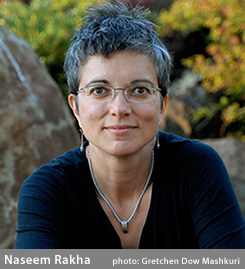retributive justice

Like many comic book fans, I spent the weekend binging on Daredevil, Marvel’s newest release. The entire first season was created for Netflix, and it dropped in its entirety on Friday. I waited until Saturday night to dig in (longer than some friends of mine), and I was hooked from the opening scene.
It's a scene that opens with Matt Murdock (lawyer-by-day alter ego of the masked vigilante Daredevil) sitting in a confessional. He begins by telling the priest about his father, a boxer who fought harder than his record could ever show. He ends the conversation by asking not for penance, but for future forgiveness — forgiveness for what he’s about to do. “That’s not how this works,” the priest says.
Yet so much of how Murdock as Daredevil works in this latest iteration of the character is how we want it to work. Based closely on Frank Miller’s writing of the character, Daredevil proves to be someone who deals justice unflinchingly. This isn’t someone who hesitates when the situation allows for a grim, overly firm hand. Contrast this with Batman, a character who struggles to commit severe violence even when it seems to be the only option.

 It's a sad day in Colorado. Our collective hearts hurt.
It's a sad day in Colorado. Our collective hearts hurt.
I didn't want to blog today. Blogging in response to everything that happens in the news can come across as knee-jerk, reactionary, self-serving, and exploitive. We're called to "pray without ceasing" — not to blog without ceasing. Sometimes reverent silence is what is needed.
The staff at Sojourners contacted me and invited me to write something in response to what just happened. So, I'm not writing a blog. I'm providing a Public Service Announcement.
Last month, the U.S. Senate held its first hearing ever on the issue of solitary confinement in prisons. To draw attention to the issue, the National Religious Campaign Against Torture urged Americans to fast for 23 hours for one day, symbolizing the 23 hours a day prisoners spend in solitary confinement each day.
"Christian scriptures and the scriptures of all religions say much about the way we are to treat other human beings, especially the most vulnerable," said the Rev. Richard Killmer, executive director of NRCAT. "And all religious traditions teach that it is important to honor and respect the dignity and worth that God has endowed in each human being. When we put people into solitary confinement cells, which we know are going to cause harm, then we have deeply violated that requirement from God to honor and respect each human being."
Yesterday Oregon Gov. John Kitzhaber announced a moratorium on all executions in the state, declaring capital punishment to be a “perversion of justice.”
Oregon has carried out two executions in the last 47 years, both during Kitzhaber's tenure as governor.
With convicted murderer Gary Haugen facing the death penalty on Dec. 6 — coupled with the governor's growing frustration with the death penalty — Kitzhaber had had enough and halted Haugen's execution as well as any in the foreseeable future.
"I refuse to be a part of this compromised and inequitable system any longer and I will not allow further executions while I am governor," Kitzhaber said in The Oregonian.
Sparing Haugen’s life is not only a powerful victory for his family and loved ones, but also for anti-death penalty activists such as Naseem Rakha, who has devoted much of her career to writing about capital punishment as a journalist and novelist.

Naseem Rakha, author of the 2009 novel The Crying Tree sees justice differently. Rakha, an award-winning journalist whose work has been featured on National Public Radio and elsewhere, has covered two death penalty cases in Oregon -- the only two in that state's history -- and has spent considerable time exploring the deeper story behind capital punishment, retributive justice and forgiveness.
"What I learned from talking to these victims is that there is a place, not called closure, not called moving on, but there is a place of empowerment," Rakha said in a recent interview with God's Politics. "Crime strips people of power, and there's nothing that the justice system or really even churches can give to you to replace that power. It is an act of wanting to sit down and meet with the person who strips that power from you that has transformed people's lives and gotten them to a point where they can forgive the act, because they see the perpetrator no longer as a monster, but as a human that has made a terrible mistake."